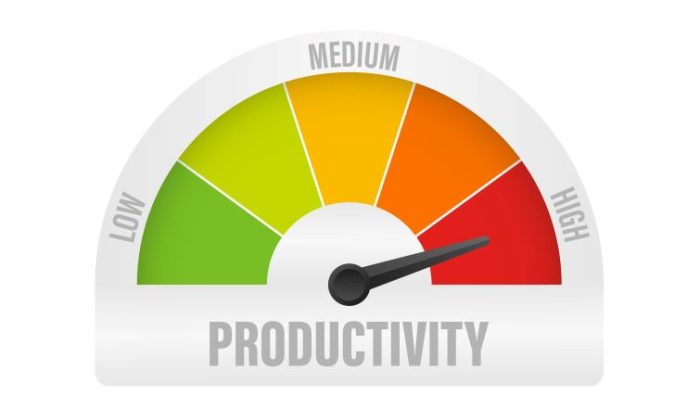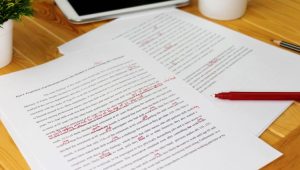5 Productivity Tips Backed by the Latest Cognitive Science
 Publié le 20 January 2022
Publié le 20 January 2022
Stay focused and meet important deadlines with 5 productivity tips backed by the latest cognitive science.
There’s no doubt about the fact that the best strategy for accomplishing exceptional results is to work smarter, not harder. With the constant focus on making quotas and generating products and focusing on productivity, however, it is easy for this message to get lost.
But, as always, there’s a catch. The thing is, outstanding efficiency, whether you work at an office or from home, doesn’t just come down to changing your work habits or mindset. On the contrary – finding that elusive balance between constructive work and healthy personal life comes down to a wide variety of elements. And, it turns out that cognitive science offers a lot of answers when it comes to boosting output without increasing input.
So, if you’re ready to make changes to your workflow and reap the benefits of more free time, you can use 5 productivity tips backed by the latest cognitive science to get more done while doing less.
5 productivity tips backed by the latest cognitive science:
- Work on your brain’s neuroplasticity
- Get Into the flow state
- Talk to people
- Do less to increase work efficiency
- Learn how your body and brain work
Work on Your Brain’s Neuroplasticity
One of the most impactful things you can do to boost work efficiency levels is, without any doubt, to invest in continual learning.
Why? Because continually challenging your brain contributes to its neuroplasticity. By definition, neuroplasticity allows the brain to create new neural pathways and eliminate those which are no longer used.
But what exactly does neuroplasticity have to do with productivity?
Well, it’s rather simple. By forging new neural pathways and training our brains to be agile, we’re essentially teaching ourselves to seek out better, more effective techniques for accomplishing tasks. Moreover, by eliminating neural pathways that have proven themselves inadequate, we’re eliminating time-wasters, strengthening our cognitive abilities, and ensuring that our energy consistently goes towards actions that promise to get us to our goal by the fastest route possible.
So, if you’re ready to explore the concept of neuroplasticity to boost productivity, try the following tricks:
- Start learning another language.
- Do non-dominant hand exercises.
- Take up an instrument and learn how to read sheet music.
- Do mnemonic drills.
While these suggestions might seem like mere hobbies to keep you entertained, the fact is that they’re excellent ways to exercise your brain, ensuring that the benefits you gain translate into your professional endeavours.
Get Into the Flow State
Another excellent technique for achieving work efficiency is to explore the idea of Flow.
Named by psychologist Mihály Csíkszentmihályi in 1975, this concept refers to a mental state in which a person is fully immersed in and focused on a task. In fact, this state of focus is so strong that the person’s productivity soars without causing them to become fatigued.
Several conditions precede getting into Flow:
- Choosing a task that’s challenging yet attainable.
- Setting clear outcome goals.
- Eliminating internal and external distractions.
- Only focusing on a single assignment at a time.
- Finding the right balance between skill level and the challenges of the task.
Even if your idea of boosting work efficiency doesn’t include getting yourself into a state of Flow, you’ll find that cognitive science supports all of these conditions, and the effect they can have on productivity.
Moreover, some hacks for getting into Flow might be an excellent way to improve overall productivity, like listening to certain types of music, changing physical environments to introduce challenges into the workflow, and eliminating the habit of multitasking.
Talk to People
If you’re a remote worker, chances are that you’re not getting much opportunity to interact with other people. And science suggests that this may be harming your ability to do efficient work.
A research study published in 2011 discovered a connection between social interactions and problem-solving capacity. According to this study, even the most basic get-to-know-you interactions increased the study participants’ cognitive function.
A more recent study from 2020 found that teams that regularly engaged in watercooler chat collaborated more efficiently and exhibited higher levels of task enjoyment. The only condition? The conversations had to be unstructured.
With this in mind, teams need to make a conscious effort to nurture connections. Even if it’s only possible to do so online.
Try to be more intentional about making room for conversation between you and your team. Seek out opportunities to meet new people operating in your industry. And, lastly, consider whether a co-working space might provide you with a chance to boost your work efficiency through social interaction. After all, even spending a few hours per week in an environment that offers room for collaboration might be enough to help you shift gears and achieve some much-needed productivity gains.
Do Less to Increase Work Efficiency
One often-ignored prerequisite of boosting productivity is taking sufficient breaks. Although doing less might seem counterproductive, it’s actually an excellent way to employ science to achieve higher output levels.
For example, one commonly suggested technique for boosting productivity is the Pomodoro method, which takes the idea of breaks and applies it on the scale of a single workday.
Or, if intermittent work doesn’t sound appealing, you can try time blocking to include some structure in your workday. This technique is a great solution for boosting productivity not just because it creates extrinsic motivation in the form of deadlines. But, it also helps you set some rules about when you work, which is an essential aspect of setting boundaries when working from home.
Of course, if you’re truly committed to doing less to boost work efficiency, don’t forget to explore how technology might help you get more done.
For example, automating some low-level tasks frees up more of your time to do the things you love.
Or, investing in better tech could speed up some aspects of your work process (especially if you’re a developer or creator).
Even something as simple as getting smart lighting, or a super-automatic coffee brewer might help free up just a bit more mental capacity, allowing you to focus on the job at hand and achieve better outcomes with less time invested.
Learn How Your Body and Brain Work
Finally, as you look to science to improve work efficiency, don’t forget that, just like a muscle, your cognitive capacities need love and care. And what better way to boost any aspect of your body’s (or mind’s) performance than to do a bit of research about health science?
Here are a few concepts to research and consider:
- There’s a connection between circadian rhythm and production cycles. A 2007 study discovered that people’s cognitive performance (attentional capacities, executive functioning, and memory) changed throughout the day, depending on the person’s circadian rhythm. Considering this, you could boost your productivity simply by tracking the times when work comes easier and scheduling the most demanding cognitive tasks for those hours of the workday.
- Hormones can impact focus. A 2010 research study discovered that having high estrogen levels contributed to people feeling sluggish and unable to focus. Similarly, a surge of dopamine can make us feel alert, which is why it’s not a bad idea to look for natural ways to boost this hormone. Getting sufficient sleep is one of the best ways to do this. However, it’s also possible to increase dopamine availability through sunshine exposure, exercise, and a healthy diet.
- Coffee may not always be the answer. One of the most common things people do when trying to get more done is brew cup after cup of coffee, thinking that the caffeine will help them be more productive. Now, it is true that caffeine can speed up reaction times, improve hedonic tone, and reduce anxiety. But only in moderate amounts. So, instead of drinking a whole pot per day, it might not be a bad idea to look at other ways to use supplements and nootropics to increase productivity. For example, research shows that L-Theanine combined with caffeine boosts cognitive function and alertness while allowing the body to remain in a relaxed state (without feeling drowsy).
- Emotional wellbeing is essential for achieving results. Like physical health, mental wellbeing also has a significant impact on productivity. For example, a 2001 study found that depression, generalized anxiety disorder, and personality disorders were predictive of work impairment. Moreover, a 2017 study found that lowering stress levels in the workplace offered significant productivity boosts. Therefore, one of the best science-backed productivity tips out there is to pay more attention to emotional health. Learning how to handle anxiety at work, for example, can not only ensure a higher output but can also be a significant element in preventing serious damage to one’s mental health state.
Conclusion
Cognitive science can offer some super-helpful productivity tips for people who want to get more done. But the truth is, no hack will work well enough if the prerequisites aren’t met.
That is, for you to improve your work efficiency, you have to make sure that you’re:
- Doing work that excites you.
- Not expecting more than physically possible from yourself.
- Open to the fact that productivity, in itself, will naturally fluctuate depending on both internal and external factors.
And, when your productivity level happens to be at a low, the best solution might not always be to force it. Instead, it might be better to take a step back and focus on something else for a while.







